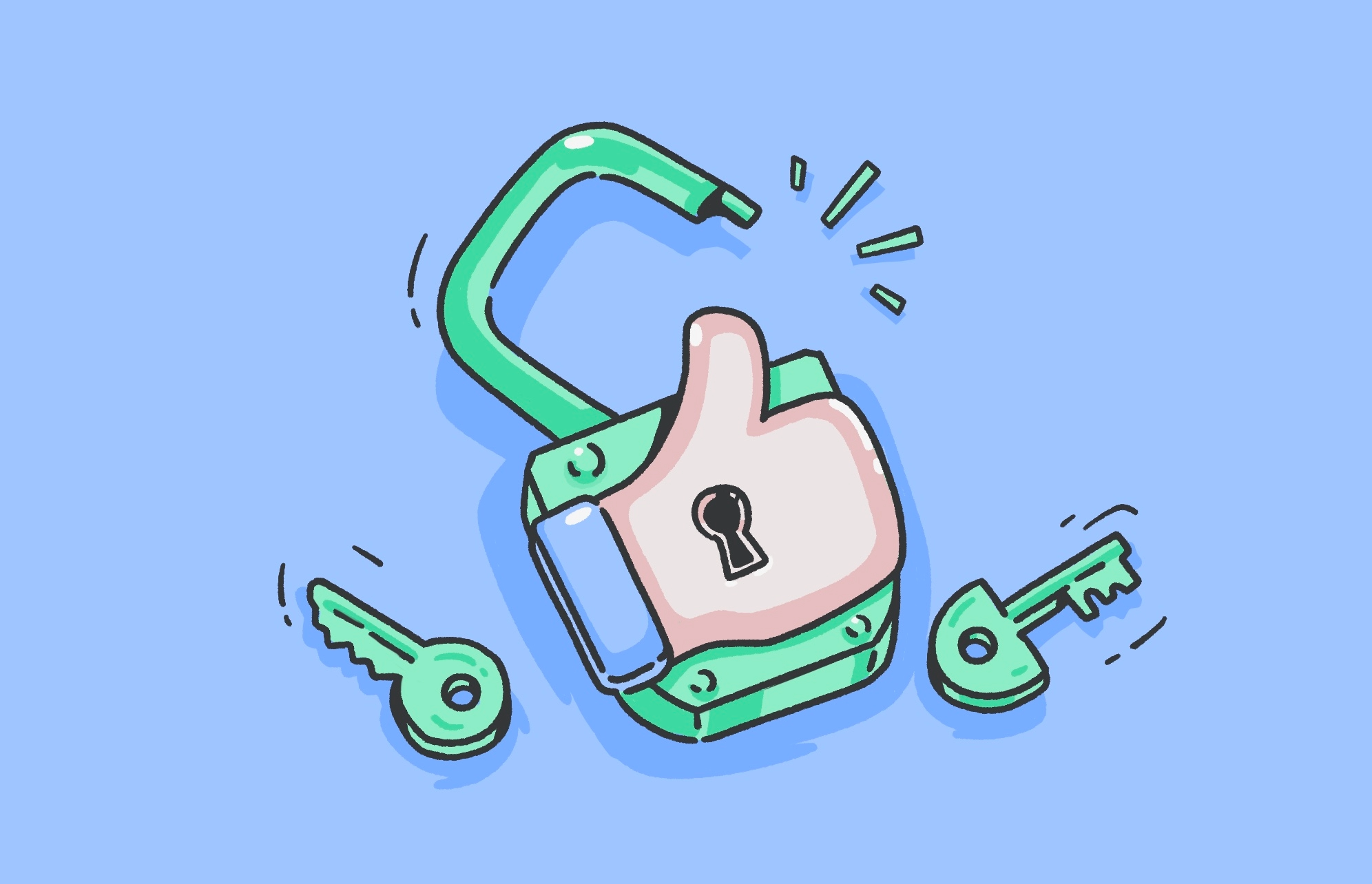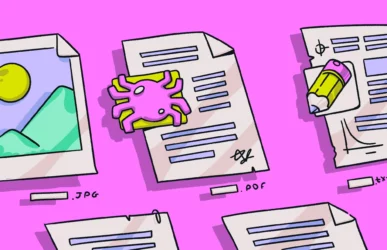Facebook is one of the most popular social media platforms. Friends and family use it to connect and share information, pictures, videos, and updates. Sadly, hackers have also discovered how lucrative it can be to hack people’s Facebook accounts, take them over, and then do damage or commit fraud.
Keep reading to learn how someone can hack your Facebook account, the signs of hacking, what to do, how to report it, and how to protect yourself from future attacks.
Don’t let hackers steal your Facebook creds
How can someone hack my Facebook account?
Unfortunately, social media opens users up to many online threats. Predators use various techniques to hack Facebook accounts, usually with the intent of stealing information for identity theft or fraud. Some of the ways scammers hack into your Facebook account are:
- Phishing: Phishing is when someone sends you an email or text that urges you to click a link. The link takes you to a fake website where the fraudster steals your information, or the website is laced with malware and infects your device. You might think you are trying to log in to Facebook, but entering your username/password is as good as handing the information over to hackers. For example, ABC7 News reported on a firefighter whose account was taken over. As a result, his connected friends were scammed out of money.
- Malware: Malware or spyware can copy your login credentials, watch your online activity, and steal your information.
- Social engineering: Social engineering is when someone pretends to be a friend or colleague and gets you to trust them, then asks for information, money, or you to take action. They might offer a free gift if you hand over your login information.
- Weak passwords: Far too many people use weak passwords that are easily guessable. Weak passwords make accounts much easier to breach.
- Data breaches: In 2019, Facebook experienced a massive data breach, exposing the data of more than 533 million users. Hackers used this information to steal login credentials and more.
Signs your Facebook account has been hacked
It can be very stressful to find out that your Facebook account is compromised. Some of the signs that indicate your account may be hacked include the following.
Unusual activity on your account
Are you seeing pictures, posts, or videos that you didn’t upload? Has your profile picture, name, or bio changed? These are major red flags that someone else has access to your account.
Unauthorized access
If you are suddenly locked out of your Facebook account, it’s likely that it has been hacked. Most hackers immediately change the login credentials so you won’t be able to undo all the damage they have planned.
Changes in account settings
If your Facebook account’s settings or privacy configurations are suddenly different, someone has probably changed them without your permission.
Unauthorized login attempts
Are you getting emails about unsuccessful login attempts or successful logins from unfamiliar locations? It could mean someone is trying to hack your Facebook account or has already succeeded in doing so.
What to do if your Facebook account was hacked
Even if your Facebook account has been hacked and your email address and phone number have been changed, don’t panic. You can still take steps to reclaim your account and fix the problem. Simply follow the steps below.
Change your password
The first step is to reset your password. Use a long, strong password made up of letters (both upper and lower case), numbers, and symbols. Keep all your passwords in a vault so you can use complex ones without remembering them.
Report the hack to Facebook
Be sure to report the hack to Facebook. You can use their recovery tool to reset your account and begin to fix the damage. Hopefully, the hacker hasn’t changed your email, phone, and birthdate.
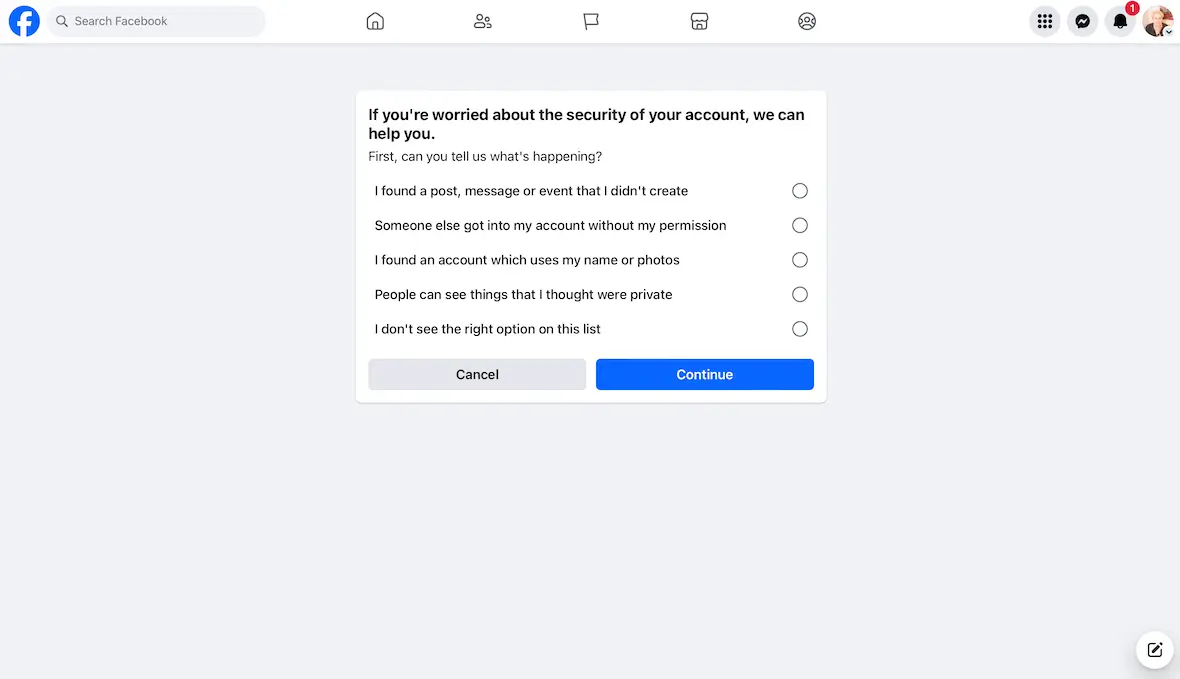
Log out of all your devices
Be sure to log out of all your devices so the hacker is kicked out of your account and cannot continue to wreak havoc. Here’s how to do this:
- Open Facebook.
- Click Settings & Privacy.
- Click Settings.
- Click Security and Login.
- Click Where You’re Logged In.
- Log out of all sessions currently running.
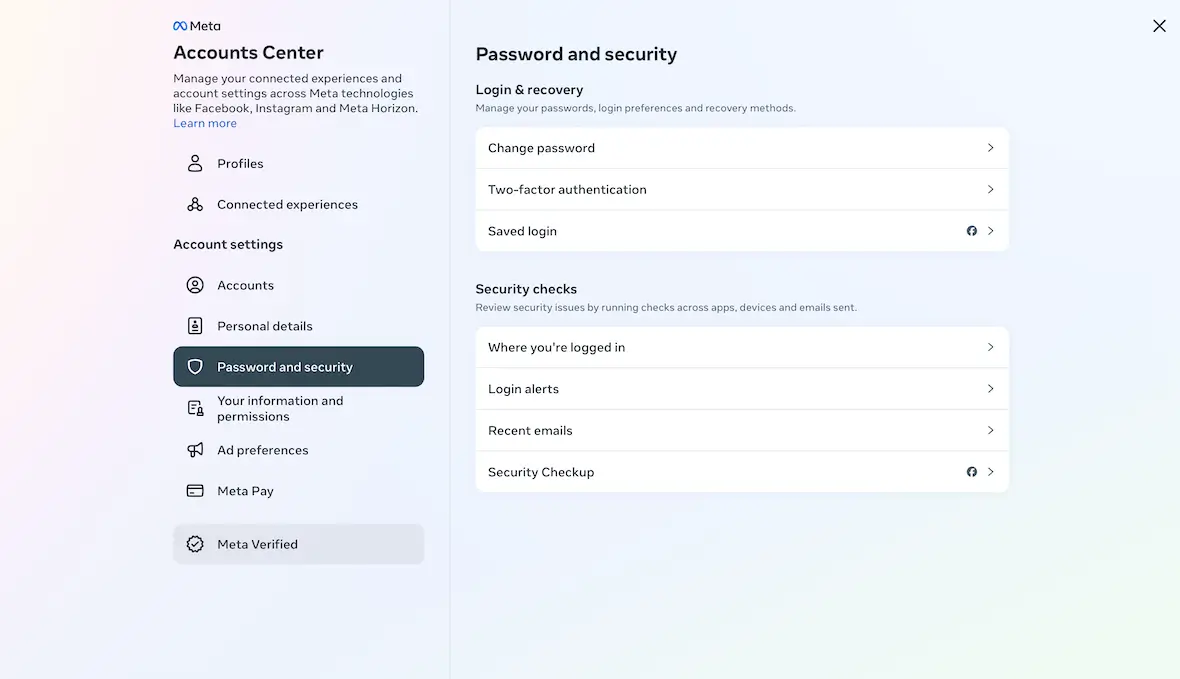
Run antivirus/antimalware software
After you clean up the Facebook mess, it’s a good idea to install and run trusted antivirus/antimalware software like Moonlock. Run a deep scan to look for any malicious software that may have stolen your credentials. Moonlock will also keep an eye on your Mac to prevent new malware from sneaking in.
How to report a Facebook hack
Facebook has a tool to help you report a hacked account and reclaim access. Visit the Help Center to start the process and follow the prompts.
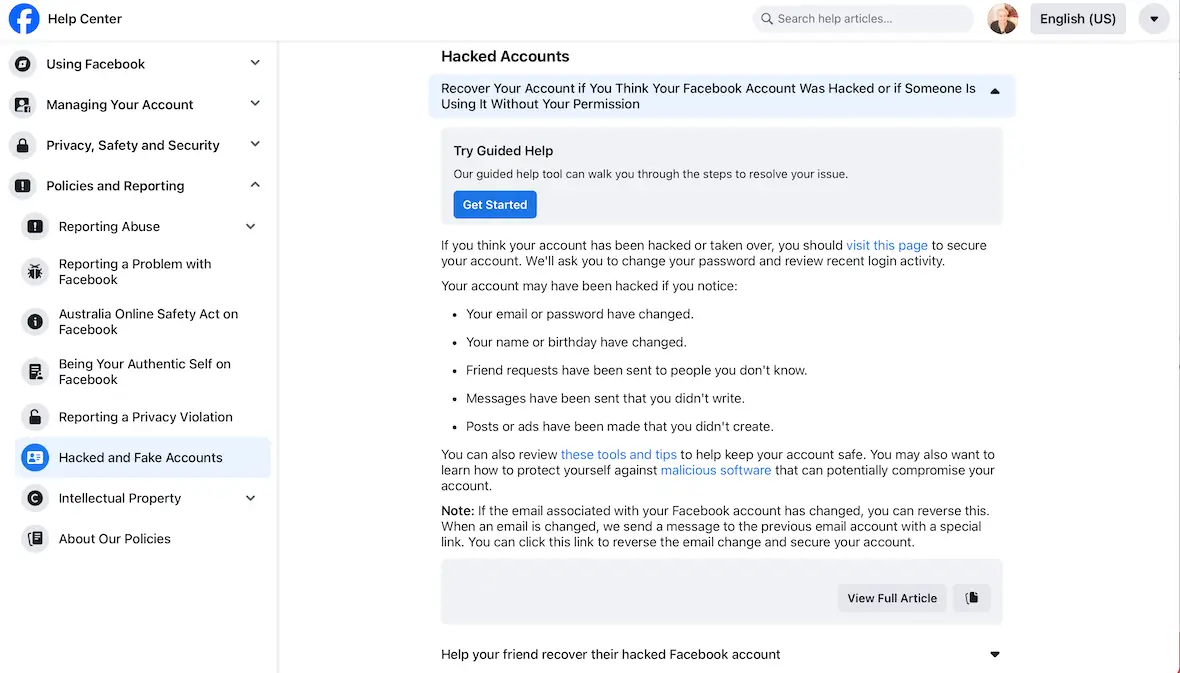
How to recover a hacked Facebook account
You’ll have to use the Facebook recovery tool to reclaim your Facebook account. Facebook will ask you some questions and have you reset your password, as well as perform other tasks to secure your account.
How to protect your Facebook account
One of the most important things you need to know about a Facebook hack is how to prevent it from happening in the future. Here are a few tips to help you stay safe.
Use a strong password
Make your password strong. Never use information that can be found online, such as a child’s name or birthday. The same goes for information about your pets.
Turn on 2FA
Enable 2-factor authentication on your account. This provides an extra layer of security, as no one can log in to your account without a unique code texted to you on your mobile device.
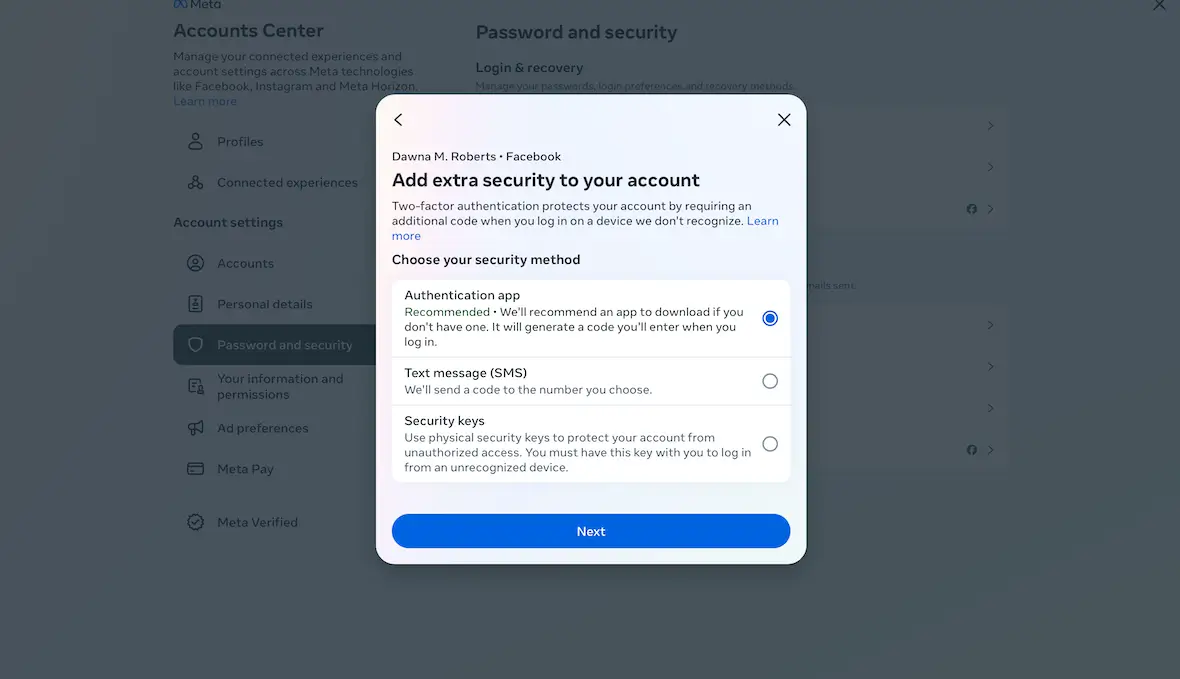
Never share information with strangers
Never give out personal information, even if you think you’re talking to a trusted friend or colleague. Hackers ask for payments or personal details to use against you. Consider probing questions a red flag.
Keep software and devices updated
Always update your apps and devices to the latest version. Many times, these updates include important security patches.
Be on the lookout for phishing scams
Never trust unsolicited emails from strangers. Anything that offers you a great deal or informs you of a “problem” that needs to be fixed is probably a scam. Be cautious. Never click links in emails or texts.
Use robust antivirus software
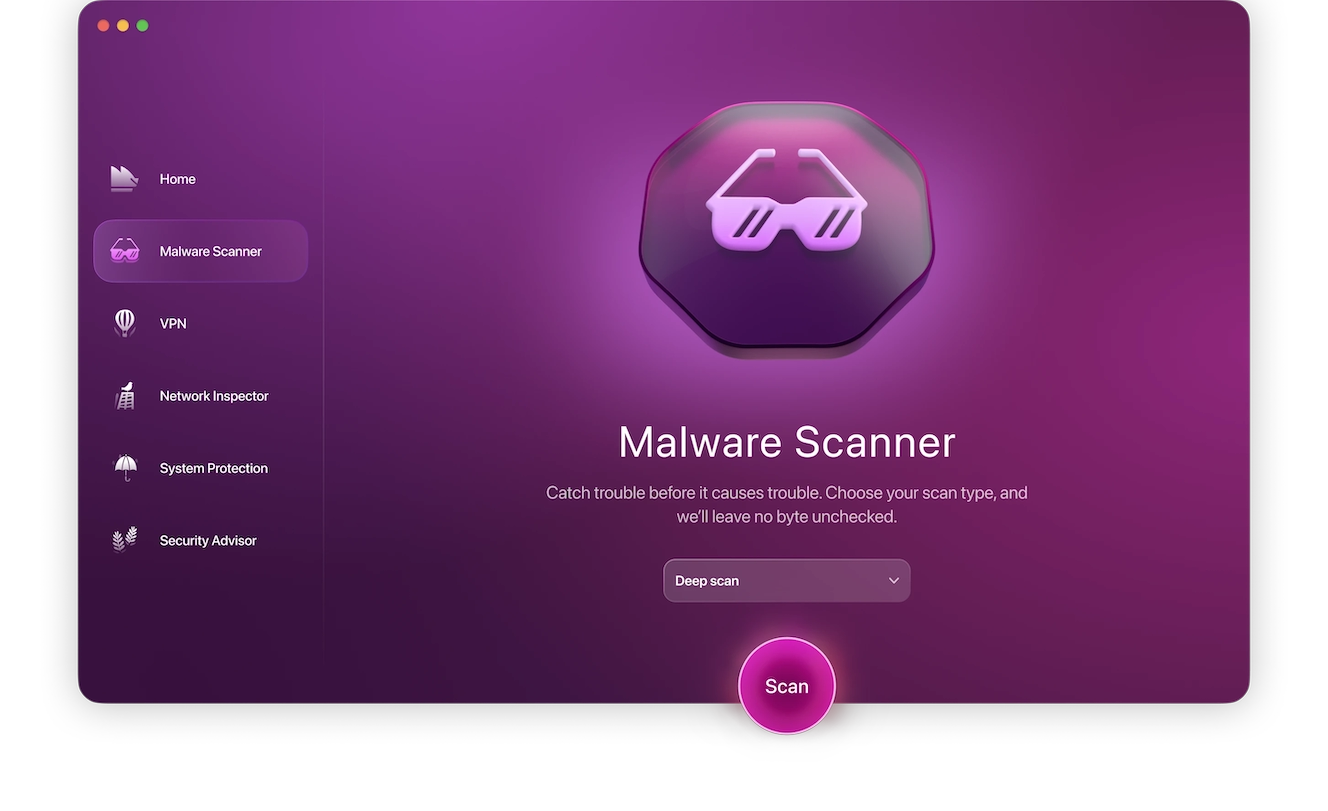
Install and use trusted, robust antivirus software on all your devices. Run deep scans often to keep things safe and secure.
For Mac users, we recommend using Moonlock — a Mac protection and antivirus app. It combines the expertise of real cybersecurity investigators, a user-friendly design, and tips on how to understand digital security better.
Scanning a Mac for malware has never been easier:
- Sign up for your free trial and install Moonlock.
- Open Malware Scanner and hit the Scan button.
- At the end, all detected malware gets isolated in Quarantine, so it can’t harm you. You just have to open Quarantine and remove everything that’s there.
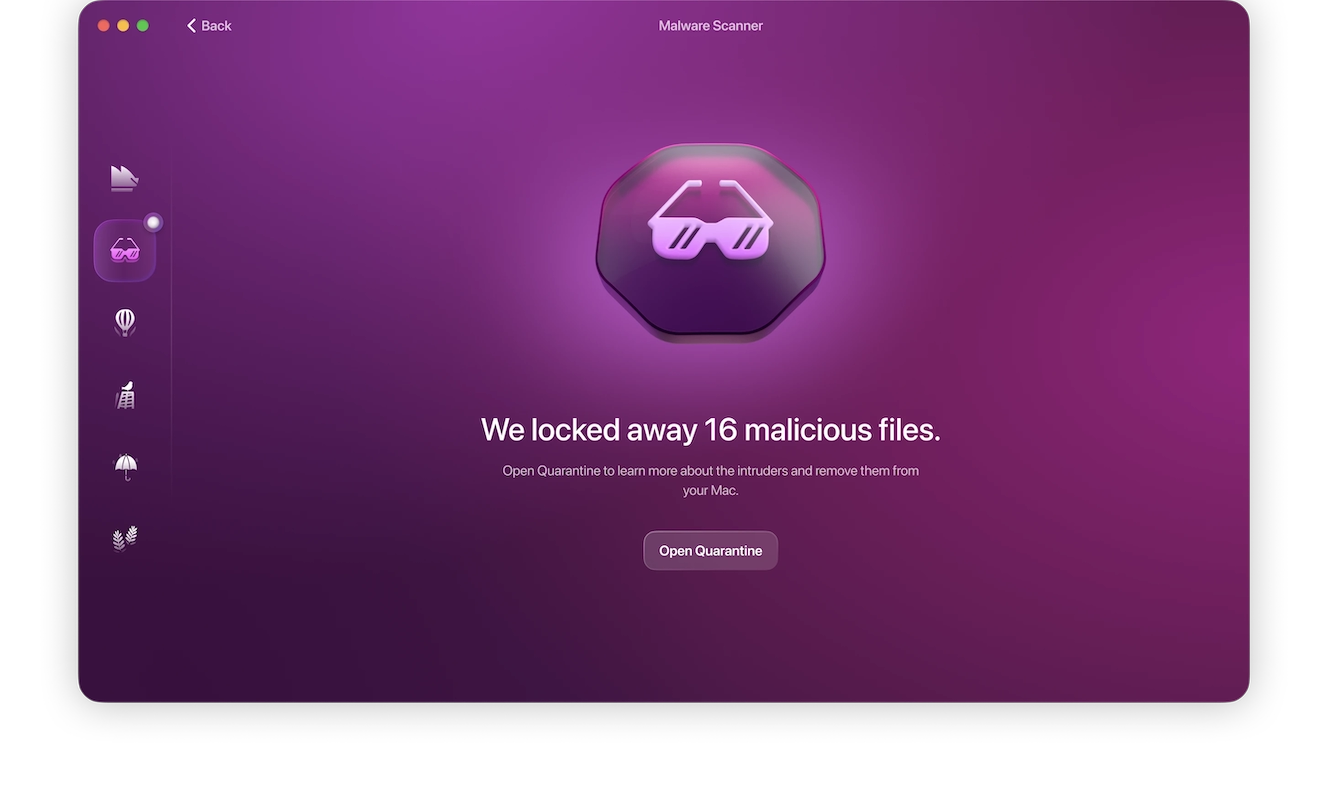
Once your Mac is free of malware, Moonlock’s real-time protection will watch over every file you open, keeping threats from slipping back in.
Facebook can be a great way to connect and share with your family and friends, but it can also cause major headaches if your account gets hacked. Thankfully, you now know how to report the incident, reclaim your account, and stay safe in the future.
This is an independent publication, and it has not been authorized, sponsored, or otherwise approved by Meta Platforms, Inc. Facebook is a trademark of Meta Platforms, Inc.
